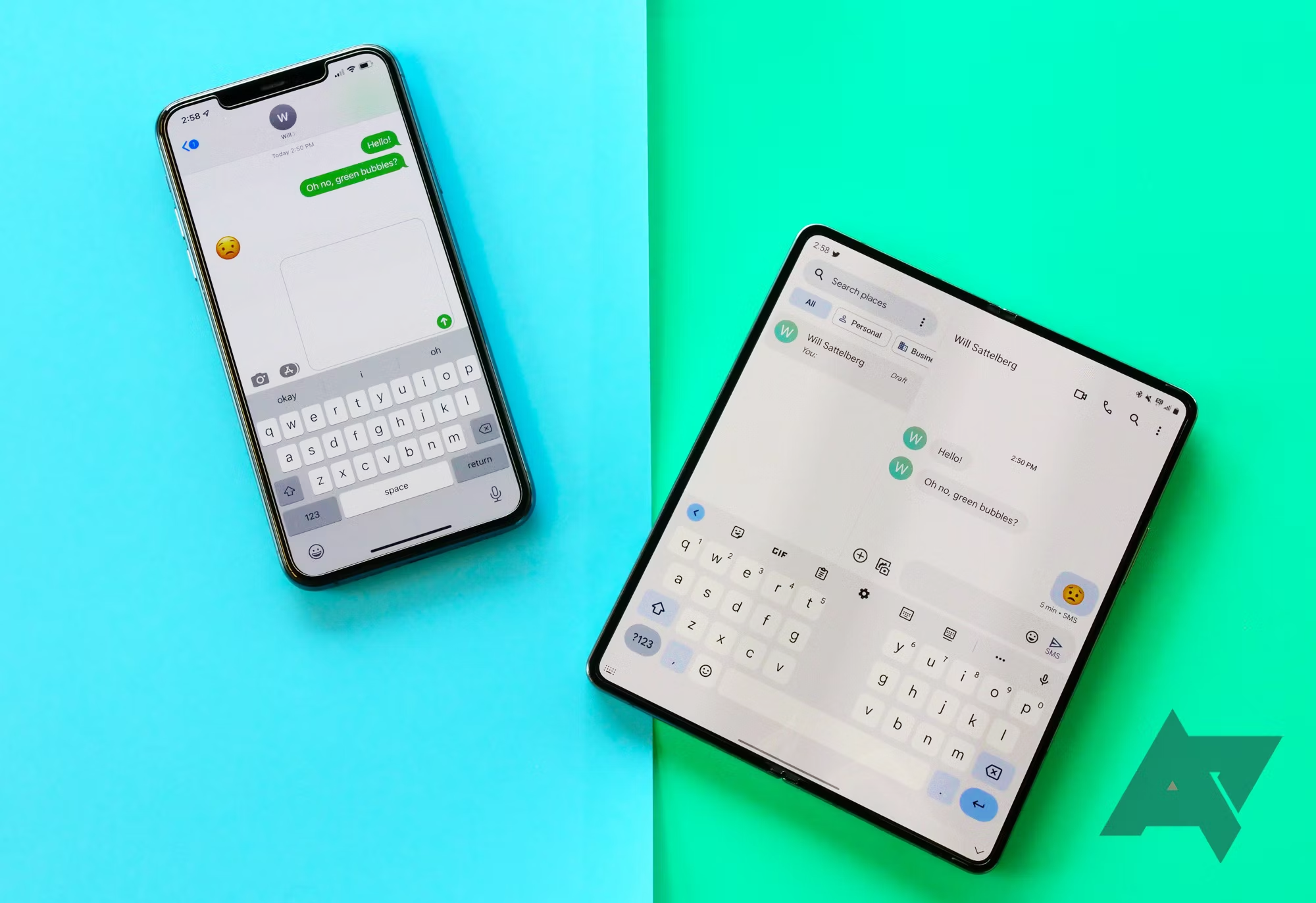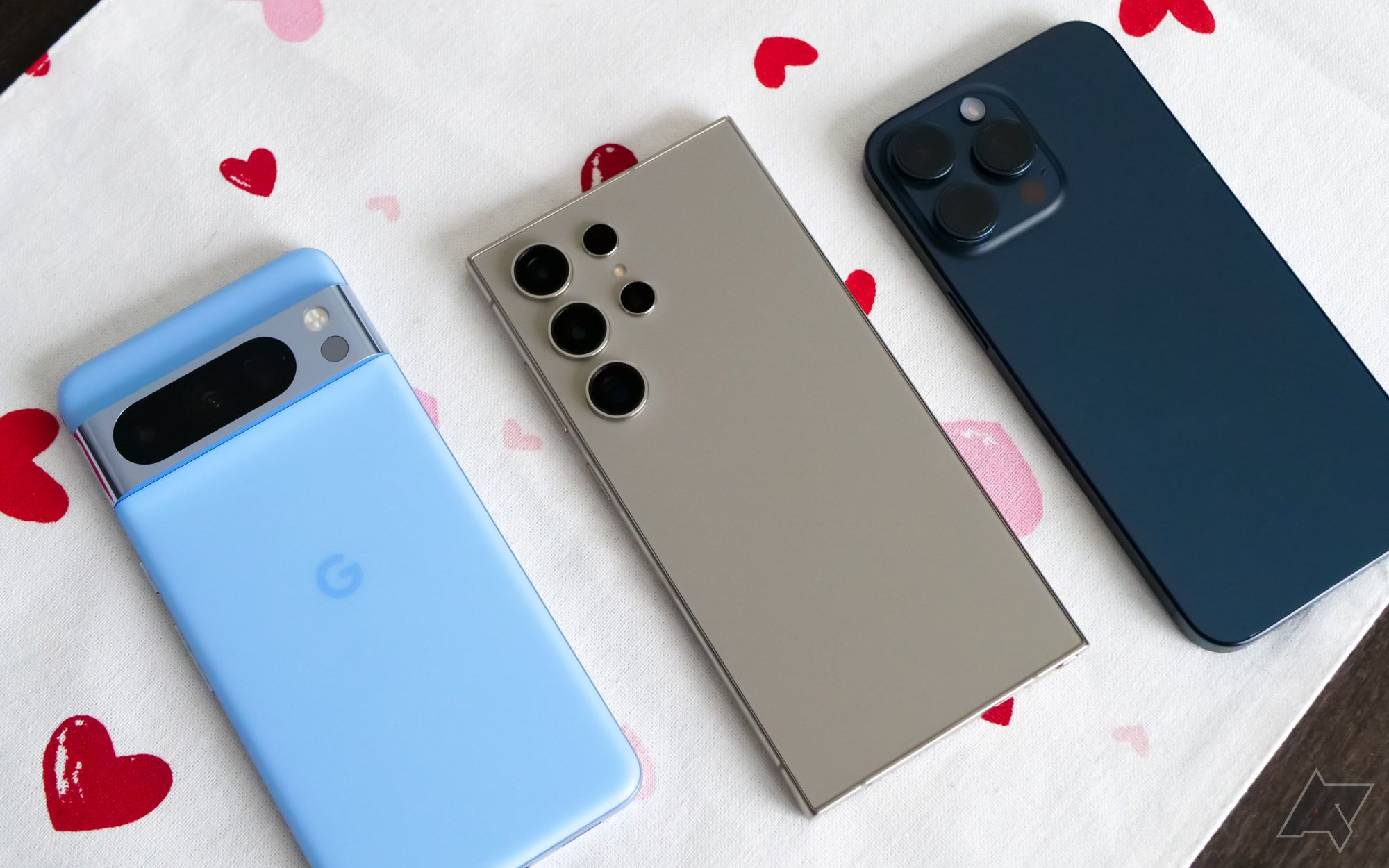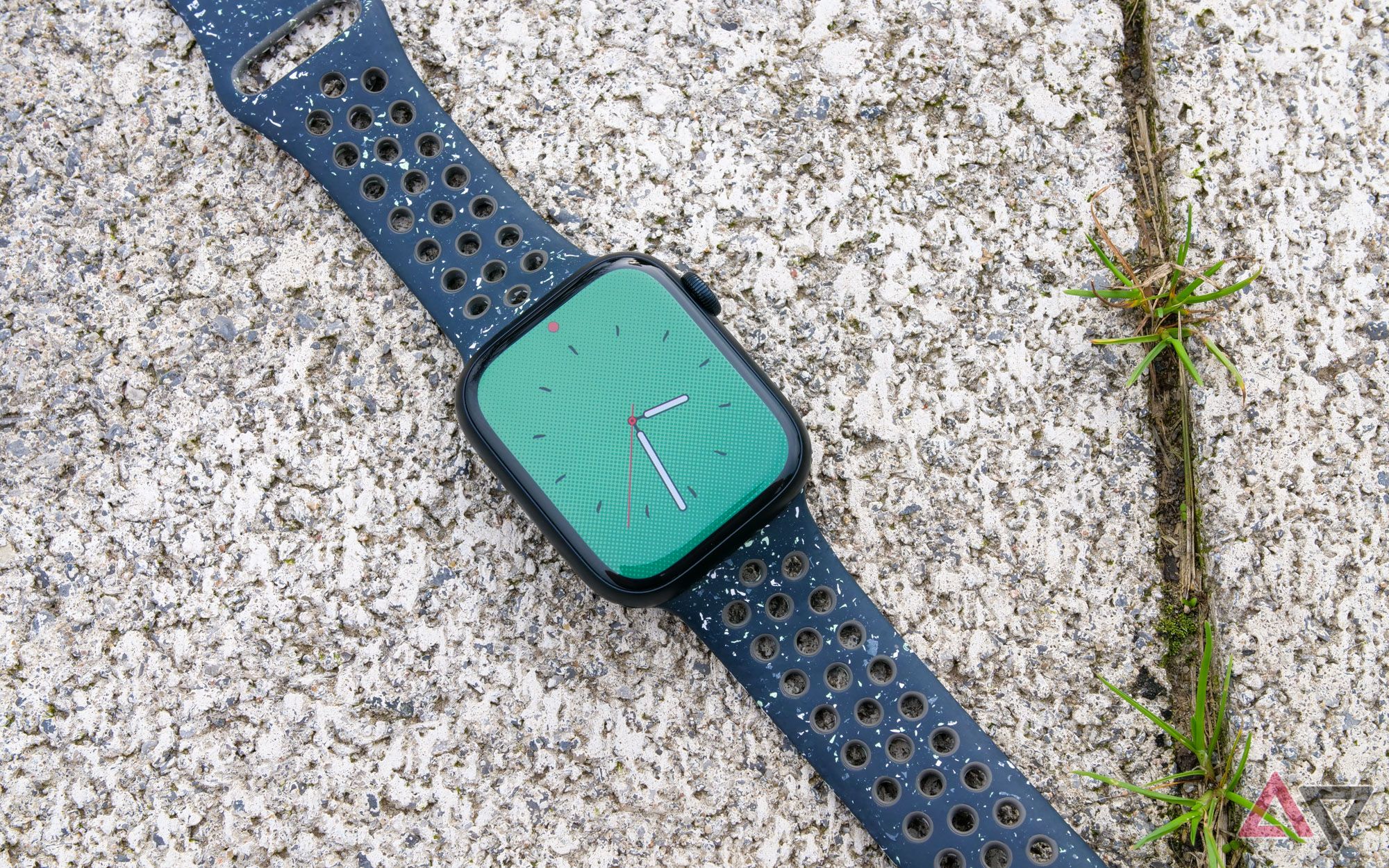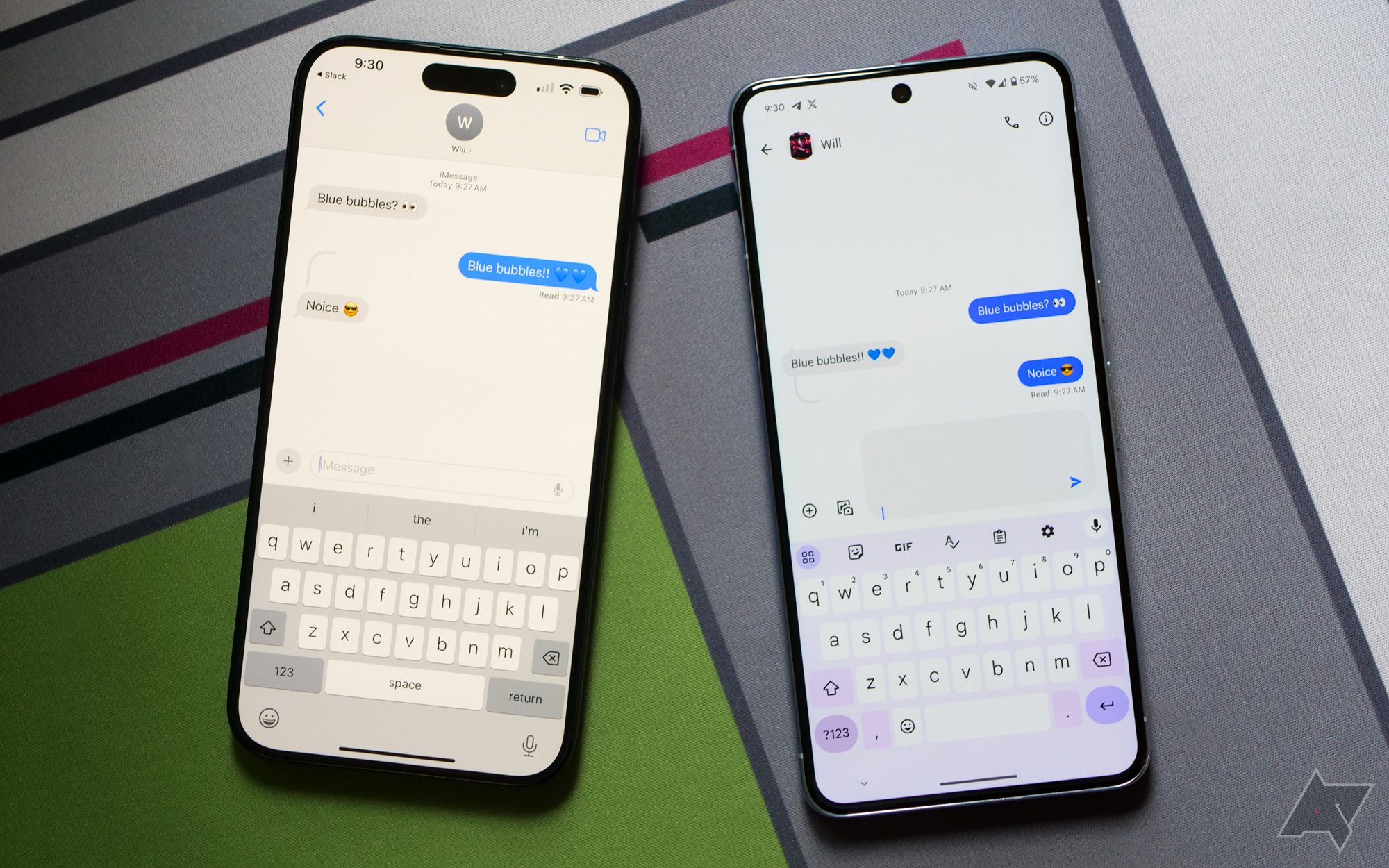The day many Android fans had anticipated has finally arrived: Apple is being sued by the US Department of Justice over alleged violations of antitrust law and, more bluntly, the iPhone’s monopoly in the smartphone space. This is a complex case, focused on five major tenets of Apple’s core business strategy, including the App Store, smartwatches, and cross-platform messaging. Frankly, there’s no better person to speak on these issues — and how they affect both Android and iOS users — than Beeper CEO Eric Migovosky.
You probably recognize Migicovsky’s name; he’s been in the news a lot over the past few months, beginning with the launch (and subsequent unlaunch) of Beeper Mini in early December. And now, Beeper is referenced — albeit not by name — in the DOJ’s complaint, with the document noting that Apple made its own users less secure by not allowing cross-platform encrypted messaging. So, in the face of today’s news, I spoke with Migicovsky to get his thoughts. Unsurprisingly, he wasn’t afraid to hold back.
This isn’t about blue bubbles — it’s about communication
It’s not just Beeper that’s brought him face to face with the limits of Apple’s platform. Old-school wearable fans will remember Migicovsky as the founder and CEO of Pebble, the Kickstarter hit that was eventually purchased by Fitbit. Meanwhile, his time as a partner at Y Combinator saw him overseeing startups that constantly bucked against the restrictions and limitations of Apple’s App Store — the exact sort of dilemma that the DOJ describes in today’s lawsuit.
But, naturally, it was Migicovsky’s thoughts on iMessage lock-in that I wanted to hear first and foremost. After all, Beeper Mini was, for a short few days, a massive success, the first time anyone successfully brought a reverse-engineered iMessage client to a non-Apple platform. It didn’t require an always-online Mac Mini or remote servers — hell, it didn’t even require an Apple account at launch. You signed up for iMessage with your phone number, just as if you were holding an actual iPhone in your hand.
Migicovsky says the reaction to Beeper Mini’s launch was overwhelming. “People came out of the woodwork to tell us that for the first time, they got to participate in family group chats, that they weren’t excluded, that they didn’t feel like they were second-class citizens,” he told me. “And to hear that in 2024, it’s just crazy. We live in the future. Why does messaging and some of these other aspects feel like it’s in the past?”
Of course, that feeling didn’t last. A few days after Beeper Mini’s launch, Apple struck back, breaking Android users’ ability to send messages as blue bubbles to iPhone owners running iMessage. After a few weeks’ worth of attempts to get around these constantly shifting blockades, the company threw in the towel. Earlier this month, Beeper returned to the Play Store with an all-new unified inbox app for Android. It’s fast, smooth, and reliable, but it doesn’t support iMessage.

Hands-on with Beeper’s new app: A unified chat inbox for Android, sans iMessage
It’s smooth, it’s fast — but don’t expect to see iMessage on it
Throughout our conversation, Migicovsky was quick to point out that this isn’t an iOS vs. Android problem, but a communication problem. Regardless of which smartphone you keep in your pocket, all anyone wants is the ability to send videos of their kids, their pets, or anything else in their lives to friends and family without thinking about apps or mobile platforms. After all, iMessage works as a method of lock-in, and not just for younger users feeling peer pressure.
Apple’s decisions impact businesses, too
Migicovsky made it clear that something like this was bound to happen at some point. Apple, he told me, had been “acting with impunity for decades now,” and while the earliest days of smartphones gave space for this level of constriction on users, that’s changed as the tech became commonplace. “All businesses need to run through a smartphone,” Migicovsky pointed out. “Any minute change [Apple] makes or restriction they make has a chilling impact across startups and companies that want to build something new.”
That kind of thinking stifles innovation before the innovation even starts.
Which brings us back to Migicovsky’s time at Y Combinator, before leaving to co-found Beeper in 2021. As a venture capital firm, Y Combinator exists to help fund and guide startups, with previous companies including the likes of Airbnb and DoorDash. But as Migicovsky tells me, practically every concept was forced to work around the restrictions Apple puts on any iPhone app.
“When anyone was considering starting a new company and building a new app or service on an iPhone, they wouldn’t necessarily be thinking, ‘how can I build the best service for consumers,’” Migicovsky said. “They were thinking, ‘how can I build something that Apple would allow me to sell on the App Store?’ And that kind of thinking […] stifles innovation before the innovation even starts.”
Ecosystem lock-in is real, and Apple’s done it for years
Beeper Mini wasn’t the only product Migicovsky personally worked on that held influence on today’s DOJ filing. Pebble was one of the earliest smartwatches to find success in the market, arriving well before the first Apple Watch in 2015. As this antitrust complaint notes, Apple provided third-party smartwatch developers with APIs for notifications, geolocation, and more in 2013, before expanding on those APIs exclusively for the Apple Watch one year later.
To this end, Migicovsky explained that, despite later Pebble models including a microphone for voice to text, iPhone users weren’t able to take advantage of this feature. The APIs to send messages from a non-Apple smartwatch — “Actionable Notifications,” as the DOJ notes in today’s document — didn’t exist, leaving Pebble owners facing an inferior experience for not sticking within the walled guardian.
Meanwhile, on Android, where these APIs did exist, Migicovsky tells me that, at the time, his team had no issues integrating with Android. Pebble users could just reply to messages with voice-to-text, just like rival smartwatches from bigger brands like LG or Motorola. “For all intents and purposes,” he says, “that was impossible on iOS.”
We’ve got a long way to go before we know the outcome
As someone who has spent more than a decade constantly pushing up against the limitations of iOS — both as a platform and, more broadly speaking, on consumer technology as a whole — it doesn’t come as a surprise when Migicovsky tells me he feels vindicated. Still, he stresses, whatever changes arrive from the DOJ’s actions today will be of benefit for both iOS and Android users, and not simply for one side or another. It all comes back to that single word: communication.
This is not a kind of religious holy war.
However this case against the iPhone’s monopoly goes, it’s clear we’ve reached some kind of breaking point on closed ecosystems. We could see a very different iOS available in the United States in just a few years — perhaps one that operates more closely with the EU-specific changes we saw go live earlier this month. “This is not a kind of religious holy war,” Migicovsky tells me near the end of our conversation. “This is about bringing people together and making it easier for people to communicate. And I think that gets lost really easily.”

Android users don’t want iMessage — they just want peace
This isn’t a story about David and Goliath. It’s a story about human interaction









